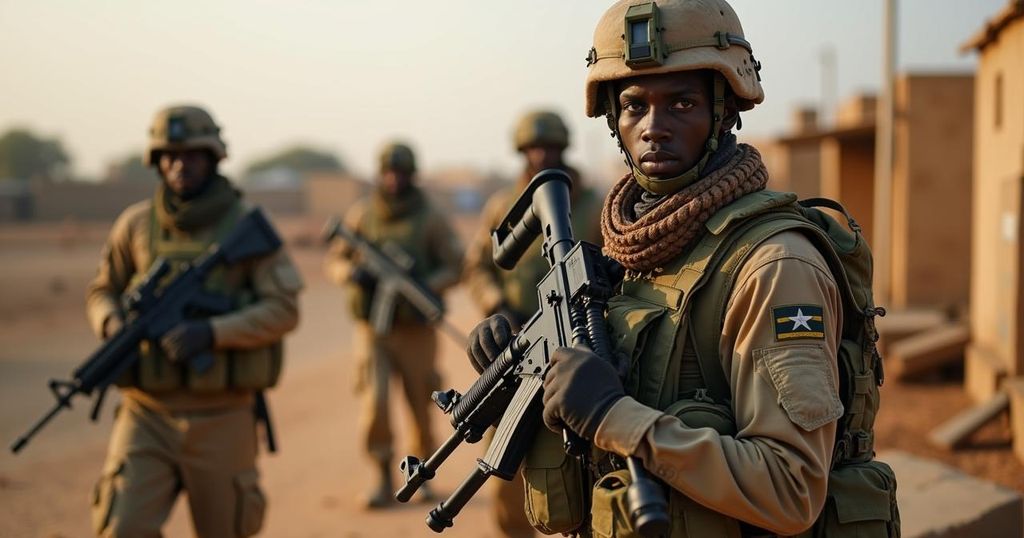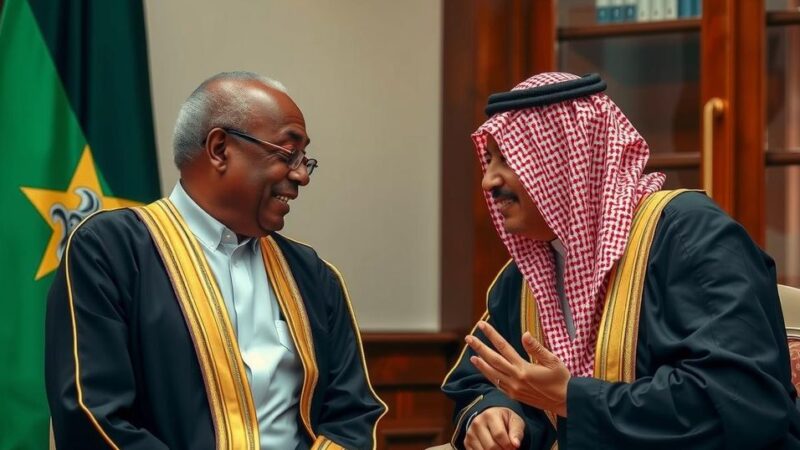Senior U.S. officials are apprehensive about the ongoing Somalia-Ethiopia conflict, which has diverted Somalia’s attention from combating Al-Shabaab. Ethiopia’s agreement with Somaliland threatens Somalia’s sovereignty, prompting Somalia to ally with Egypt. This situation risks revitalizing Al-Shabaab, which had previously suffered territorial losses due to Somali military efforts.
Senior American officials express concern regarding the ongoing conflict between Somalia and Ethiopia, sparked by Ethiopia’s recent indication of territorial ambitions over the Red Sea. This situation has diverted Somalia’s attention for the past nine months. A notable development includes Ethiopia’s signing of an agreement with Somaliland, an autonomous region of Somalia, which could allow Ethiopia access to the Red Sea for military and port development. In exchange, this agreement may lead to the recognition of Somaliland’s sovereignty, exacerbating tensions with the Somali government, which perceives this as an infringement of its territorial integrity. The situation has compelled Somalia to strengthen ties with Egypt, further escalating tensions in the Horn of Africa. U.S. officials express apprehension that Somalia’s focus on its disputes with Ethiopia has permitted Al-Shabaab militants to regain territory and momentum lost during prior military campaigns against them. This is in stark contrast to earlier successes where the Somali government managed to displace Al-Shabaab from key areas and diminish their operational capabilities. The involvement of Egypt, which is actively supporting Somalia with military supplies, has complicated the dynamics further. Simultaneously, there are concerns among U.S. defense officials about potential escalation in the fight against Al-Shabaab, already complicated by the entry of Egyptian forces into this mission dubbed the African Union Support and Stabilization Mission (AUSSOM). Despite Ethiopia’s historical role in peacekeeping within Somalia, the Somali government has openly expressed its discontent with the presence of Ethiopian troops. Reportedly, Somalia has curtailed its military engagements against Al-Shabaab amidst the upheaval with Ethiopia, halting planned operations in southern regions and leading to recent renewed attacks by Al-Shabaab, notably against military installations, including one operated by the Ethiopian National Defense Forces. President Hassan Sheikh Mohamud has publicly acknowledged the adverse effects of Ethiopia’s expansionist ambitions in the region, indicating that such developments could lead to the resurgence of Al-Shabaab.
The ongoing conflict between Somalia and Ethiopia represents a complex geopolitical situation in the Horn of Africa. The emergence of Ethiopia’s territorial ambitions, manifested in a controversial agreement with Somaliland, poses significant challenges to Somalia’s sovereignty and national security. Furthermore, Somalia’s strategic alliance with Egypt, a nation historically embroiled in its own conflicts with Ethiopia, adds layers of complication to the regional dynamics as their combined military efforts by AUSSOM seek to destabilize the resurgence of Al-Shabaab. The past achievements against Al-Shabaab reflect significant losses for the militant group, but the renewed focus on inter-state tensions threatens to undermine these hard-won gains.
In summary, the U.S. is observing with concern the conflict between Somalia and Ethiopia, which is detrimentally affecting Somalia’s focus on countering Al-Shabaab. The ongoing tensions, compounded by Ethiopia’s agreement with Somaliland and increased Egyptian involvement, have raised alarms about the resurgence of Al-Shabaab in the region. As Somalia shifts its focus toward its national sovereignty and territorial disputes, the potential for a setback in its counter-terrorism efforts remains significant, warranting close international attention and support.
Original Source: www.garoweonline.com






